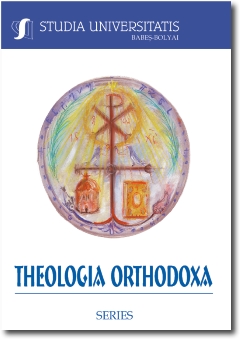“THE BREAD OF LIFE” (JOHN 6, 22-29). AN EXEGETICAL APPROACH
“THE BREAD OF LIFE” (JOHN 6, 22-29). AN EXEGETICAL APPROACH
Author(s): Ioan Florin CodreaSubject(s): Christian Theology and Religion
Published by: Studia Universitatis Babes-Bolyai
Keywords: bread; life; Christ; Body; Blood; Eucharist.
Summary/Abstract: The text of the Lord’s speech from John 6, 26-58 is placed in the context of the narrative of bread’s multiplication and has a precise Eucharistic reference for us, because, no matter the way in which the variations from different manuscripts are interpreted, the introduction of the discourse starts with a reference to that multiplication: “where they had eaten the bread” (6, 23) and ends also with an Eucharistic note: “it is given … for the life of the world … Unless you will eat…”. As it appears from our interpretation, the Eucharist is the plenary presence of Christ in His Church and in the humanity redeemed and incorporated in it, through His Body and Blood full of the Holy Spirit. In the first part of the discourse about “the bread of life” Jesus makes a comparison between the manna that the chosen people ate in the wilderness and the real bread which will be sent from heaven by the Father (6, 32). On this occasion, He specifies that the manna was not the real bread and that He Himself is “the bread of life” (6, 35). The content of the last part of this speech, rightly considered a Eucharistic speech (6, 53-59) may be summarized in this way: by eating the Holy Eucharist, Christ remains in us and we remain in Him. Three are the defining elements of the analyzed fragment: the paschal motive, the resemblance between Jesus and Moses, the prophet, and the eschatological expectation. These are projected on the Eucharistic background of the dialogue between Jesus and the crowd that surrounds Him. Our exegesis gives priority to the sacramental interpretation (i.e. Eucharistic) of the words of the Lord, but mentions also other exegetical opinions, which reject this interpretation, because this is required by the scientific honesty: audietur et altera pars.
Journal: Studia Universitatis Babes-Bolyai - Theologia Orthodoxa
- Issue Year: LVIII/2013
- Issue No: 1
- Page Range: 71-82
- Page Count: 12
- Language: English

